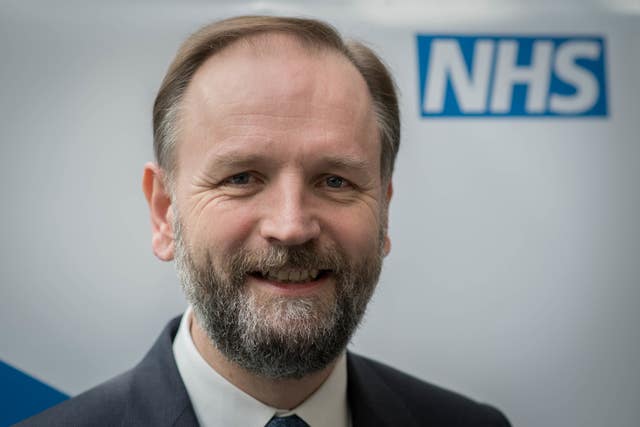
Hospitals face running out of drugs in a chaotic no-deal Brexit, the group that represents NHS hospital and ambulance service has privately warned.
Poor co-ordination by ministers and health service bosses means there has been a failure to prepare for the UK to be left without a Brexit deal, a leaked letter from NHS Providers said.
“Public health and disease control co-ordination could suffer,” said NHS Providers chief executive Chris Hopson, setting out how a hard Brexit or no deal could negatively effect “the entire supply chain of pharmaceuticals” and “jeopardise” the EU citizens making up the “workforce on which the NHS relies”.
Mr Hopson’s letter was sent to NHS England chief executive Simon Stevens and NHS Improvement chief Ian Dalton on Friday, and has been leaked to the Times.

Mr Hopson said the possibility of a no-deal or hard Brexit “with minimal regulatory alignment appears to be growing”.
“For as long as that risk remains, it is important that detailed operation planning is undertaken across the NHS,” he wrote.
“Yet trusts tell us that their work in this area is being hampered by the lack of visible and appropriate communication.
“Our members have begun planning … but they have hit a problem, in that some activities are clearly best done at a national level and, in the view of trusts, are best co-ordinated by NHS England and NHS Improvement.
“However there has been no formal communication to trusts from either of your organisations on this issue.”
Mr Hopson warned it would be more “efficient and effective” for ministers and the NHS bodies to work out a national contingency plan for trusts, rather than “expecting trusts to develop contingency plans individually, in a vacuum, and have to reinvent the wheel 229 times”.
Poor national co-ordination, he added, could mean “both stockpiles and shortages of medicines and medical devices”.
A spokesman for NHS Providers confirmed the letter was genuine but stressed it had not been leaked by his organisation.
“We have not leaked this letter,” he said. “These conversations abougt Brexit are obviously something that happened between ourselves and the other organisations.
“This correspondence was private but it has been leaked and we are not saying anything further about it.”
Last month Mr Stevens said “extensive” planning was taking place to prepare for a no-deal scenario.
“There is immediate planning which the health department, with other parts of Government, are undertaking around securing medicine supply and equipment under different scenarios,” he said.
“That will obviously crystallise when it’s clear later this autumn what the UK’s position will be.”
Brexit Secretary Dominic Raab will head to Brussels on Tuesday and Wednesday for the latest round of negotiations with EU chief negotiator Michel Barnier, which a Downing Street spokesman said would be “resolving the few remaining withdrawal issues”.
On Thursday, the Government will publish the first of a series of technical notices, designed to help people and businesses prepare for a no-deal scenario.
Mr Raab will also give a speech outlining how the Government plans to mitigate the potential risks of leaving the EU without a deal and ensure continuity and stability.
The issue of EU nationals’ residency will not be among more than 80 “no-deal” technical notices to be issued over the coming weeks.
Ending freedom of movement after Brexit risks 100,000 fewer adult social care workers by 2026, the think tank Global Future warned. Currently 17% of social care staff in England, or 220,000, are from overseas.
An NHS spokeswoman said: “Ensuring the NHS is prepared for every potential outcome of Brexit is a priority.
“Government leads on contingency planning for different scenarios and we are working with them on this and ensuring NHS voices are heard.
“We will be working with our colleagues and partners across the NHS to ensure plans are well progressed, and we will provide the NHS with the support it needs.”
Meanwhile, arch-Brexiteers announced they have set up a new alliance of 10 groups, the Brexit Advance Coalition, supporting the hardest Brexit, involving the Bow Group, British Friends of Trump and Get Britain Out.
Bow Group chairman Ben Harris-Quinney said his message to Theresa May is clear: “Your Chequers policy needs to change, or the Government needs to change.
“We may differ on some issues, but we are all united under our three founding principles that we feel are crucial to seeing a full Brexit achieved.”


Comments: Our rules
We want our comments to be a lively and valuable part of our community - a place where readers can debate and engage with the most important local issues. The ability to comment on our stories is a privilege, not a right, however, and that privilege may be withdrawn if it is abused or misused.
Please report any comments that break our rules.
Read the rules here